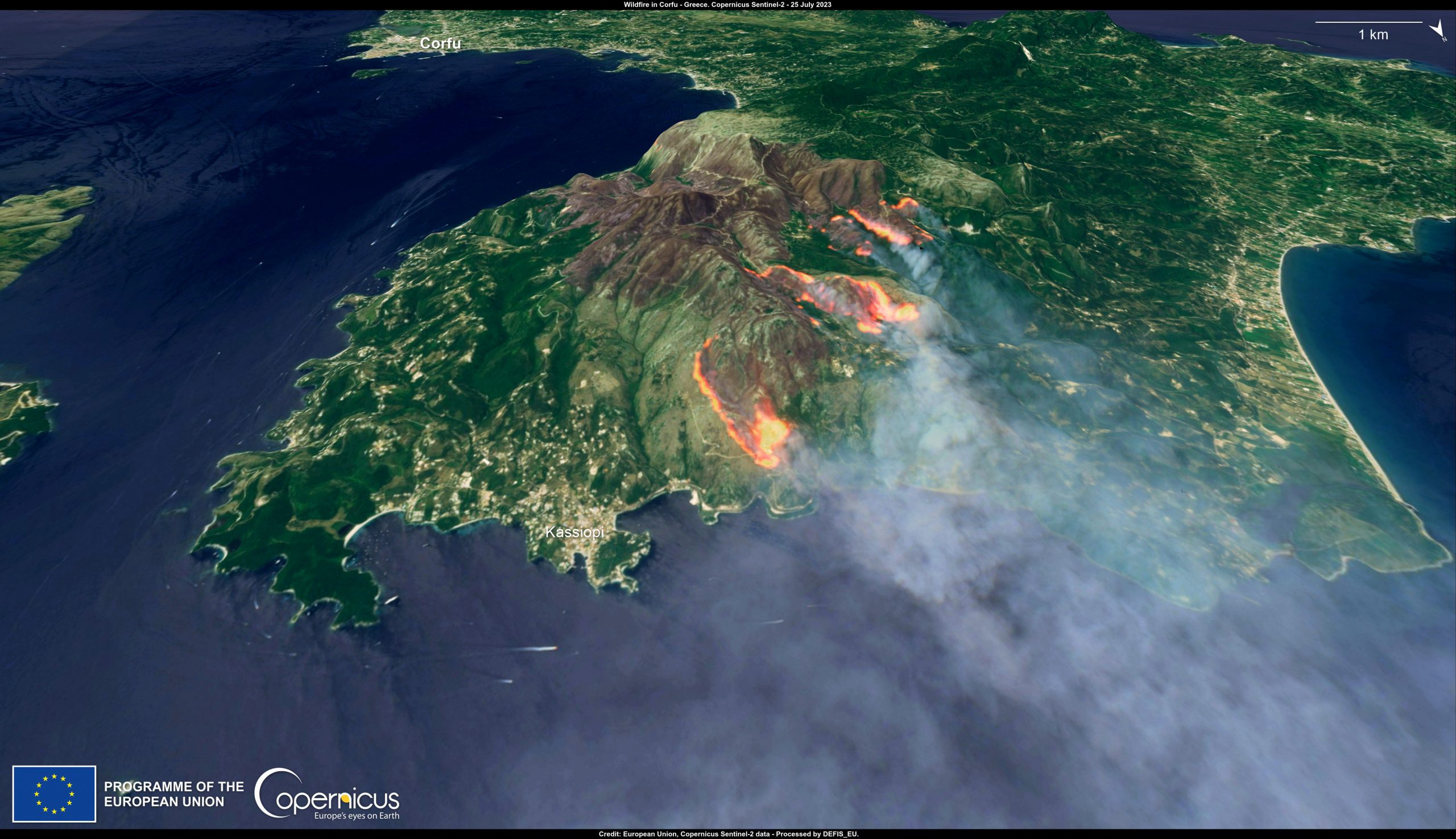The Covid pandemic has forced the world to adopt unprecedented health and safety measures that, amongst other things, have altered the way large multilateral negotiations take place. Although in-person meetings throughout 2020 were all but impossible, momentum for lowering emissions and increasing ambition in the struggle against climate change has kept going. Not least of which through virtual meetings such as the UNFCCC’s June momentum for Climate Change conference which was conducted entirely online. Setting an important precedent for the digitalization of climate dialogues.
More recently, the Race-to-Zero November Dialogues saw Parties and stakeholders convene online to discuss progress with regards to a zero-carbon emissions future and, a few weeks later, the UNFCCC Climate Dialogues took place from 23 Nov – Dec 4 (also online), with the purpose of further advancing climate negotiations due to the postponement of COP26. These climate dialogues are setting the stage for the Ambition Summit and the Anniversary of the Paris Agreement on 12 December with negotiators managing to meet notwithstanding the lack of face-to-face interactions.
Although it goes without saying that digitalization cannot replace in-person negotiations in the long run, the climate dialogues have allowed for the development of a new set of tools that will continue to be useful in future multilateral processes. Not least of which due to the ability of digitalization to create a more inclusive and transparent space where the UNFCCC process can unfold.
The #RaceToZero pathways are designed to unleash the full potential of the Paris Agreement – @PEspinosaC at the opening of Race to Zero Dialogues that kicked off today. More: https://t.co/VTDSJWXEsE pic.twitter.com/vfFOyAWd3D
— UN Climate Change (@UNFCCC) November 9, 2020
“The digital transformation induced by the pandemic might force us to re-think the way climate diplomacy works, rather than simply providing a temporary fix before going back to business-as-usual. The digital transformation can provide an unprecedented opportunity to open up the UNFCCC process and make it transparent and accessible to everyone”, explains CMCC researcher in the Risk Assessment and Adaptation Strategies division, Elisa Calliari who has attended multiple COPs as an observer since 2014.
In fact, during the closing session of the Climate Dialogues some Parties took the time to express their belief that the digital format of the conference had actually further democratized the UNFCCC process. Janine Felson, Chair of AOSIS stated that: “Let’s look at the positives of the virtual dialogue. It has really democratized the process. We’ve been able to reach so many more than we would have been able to had we just been locked inside of conference rooms. We need to take the positives and move on from there.”
Not just digitalization
Earlier in 2020 Calliari had joined fellow CMCC researcher Jaroslav Mysiak and UCL researcher Lisa Vanhala in writing a correspondence piece that discussed the development of a “Digital Climate Summit to maintain Paris Agreement ambition“. Something that materialised in June with the “June Momentum for Climate Change“, the UNFCCC’s solution to continuing work through virtual meetings which allowed Parties and other stakeholders to engage in dialogue and share information so as to maintain momentum and assess climate action progress.
In fact, digitalization can become more than a short term solution to the restrictions imposed by Covid. It can also serve as a platform where researchers, civil society representatives, governments and international organizations learn from each other and expand their networks, adding to the rich programme of side events that come with each COP.
Acting against climate change should be everybody’s affair. Digitalising climate summits can represent a first step towards a more inclusive and accessible model of cooperation on climate change.
Elisa Calliari
Although moving in-person conferences online is certainly feasible from a technological point of view, and necessary in the short term, it cannot be considered a long term solution. Rather it should be used as a complement to in-person meetings that allows for more ample participation. In fact, research indicates that face-to-face participation is fundamental towards negotiation processes.
“The digital divide between developed and developing countries can result in an additional source of power asymmetry within the UNFCCC process. Moreover, as some commentators have noted, there are issues of real-time translation into the six UN languages and the fact that the physical aspects of a negotiation — body language, interpersonal bonding, the mood of the room — greatly affect its outcomes,” explains Calliari, Mysiak and Vanhala in their Nature Climate Change correspondence piece.
Digitalization can provide new formats, that maintain political momentum for climate action while ensuring participation from business, research and civil society. Where actions that do not need to be negotiated by Parties can be discussed in a virtual space, even making climate negotiations more open and transparent.
Climate dialogues maintain momentum
The most recent set of virtual meetings, the UN Climate Dialogues, involved over 80 virtual events and provided a platform for countries and other stakeholders to showcase progress made in 2020 and exchange views and ideas on mandated work for COP26.
Today at the #ClimateDialogues, discussions on how to protect the world's oceans continue. pic.twitter.com/oCdWIBAmUW
— UN Climate Change (@UNFCCC) December 3, 2020
The UN Climate Dialogues format involved meetings and events by the constituted bodies, informal consultations by the Presiding Officers with Parties, and a series of technical workshops and information events on matters related to the work of the governing and subsidiary bodies. Events ranged from discussions on Ocean and Climate Change Dialogue to consider how to strengthen adaptation and mitigation action, to technical dialogue on common time frames for nationally determined contributions.
Marianne Karlsen, Chair of the body that provides advice on implementation to the COP, believes that, with over 8000 attendees and 3100 delegates: “It is encouraging to see those impressive figures, which reflect the high interest of our partners to continue to engage in the climate change multilateral process, and of the wider public to stay informed and willing to participate in the fight against climate change.”
Mr. Tosi Mpanu Mpanu, Chair of the subsidiary body that provides technical and scientific advice to the COP, expressed his belief that the virtual meetings have helped keep ambition high and that the meetings had a “catalyzing effect [and] we are confident that the constituted bodies are now in a better position to advance the work in 2021 in accordance with their mandates in these action areas.”
The UNFCCC virtual #ClimateDialogues wrapped up today, having brought together some 8000 attendees over 2 weeks.
Governments are now in a better position to advance work on international #ClimateAction in 2021.
PRESS RELEASE: https://t.co/fWsEk8QmBC #COP26 pic.twitter.com/xrcZNC2PNP
— UN Climate Change (@UNFCCC) December 4, 2020
Parties and stakeholders came together to discuss a vast array of topics, including emission reductions, adapting to the effects of climate change, the provision of finance for climate action, technology cooperation, gender and capacity building. The COP25 president, Minister Carolina Schmidt from Chile, explained that: “Although negotiations will have to wait, these virtual talks are a substantive contribution to our common understanding in a wide range of crucial issues.”
The Climate Dialogues have shown that parties are willing to engage in the virtual space and continue to step up climate ambition. They have also revealed the potential for digitalization to facilitate preparatory work for the Climate Ambition Summit on 12 December, COP26 and beyond.






